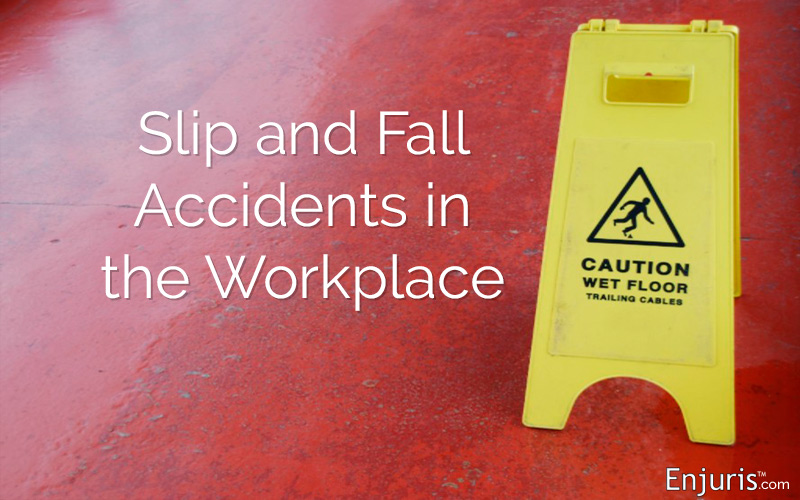If you were injured by a property hazard in a place where you were allowed to be, you might have a premises liability claim
A property owner has a responsibility to keep visitors free from harm. Here’s how Illinois handles these types of lawsuits.
Premises liability is the set of Illinois laws that inform how a plaintiff can recover damages for an injury caused by a property hazard.
Broadly, these types of accidents include (but are not limited to):
- Slip or trip and fall accidents
- Swimming pool accidents
- Amusement park/other recreational accidents
- Inadequate security
- Dog bites or other animal attacks
- Elevator accidents
- Uneven or cracked sidewalks, floors, or steps
- Falling tree branches or other objects
- Retail store accidents
- Defective conditions
- Construction site accidents
- Ceiling or roof collapse or breakage accidents
- Electrical accidents that leave burn injuries
Premises liability is included in personal injury law. The purpose of any personal injury claim is to make the injured person whole. The law aims to restore them to the financial position they would be in if the accident had never happened. Damages for a personal injury lawsuit can be awarded if the defendant is proven negligent or if they did not exercise their duty of care not to cause foreseeable harm to another person.
Illinois Premises Liability Act
This law protects people from harm caused by negligence or carelessness of property owners.
A property owner or manager is responsible for taking reasonable care to keep people safe on the premises.
Licensees and invitees
Illinois law classifies a visitor as either a licensee or an invitee. A licensee has permission to be on the property but doesn’t provide a benefit to the property owner. For example, a social guest.
An invitee enters the property with permission for a business-related reason. For example, a person providing a service like delivering the mail, cleaning, repairing something at the owner’s request, or a patron of a business.The property owner owes a duty of care to both an invitee and a licensee. They must keep the property in good condition, inspect for dangerous conditions, and repair a hazard and/or have warning signs if the condition is not immediately corrected. The property owner is legally liable for an unsafe condition if they knew or should have known about its existence.
Trespassers
A trespasser is on someone else’s property without permission. They are owed the lowest duty of care because they’re not supposed to be there in the first place. In this instance, the property owner must only exercise reasonable care to prevent injury.
Illinois law does not hold a property owner liable for injuries to a trespasser, even if they failed to warn about a danger or repair a defect. The owner could be liable if the injury was caused by a reckless disregard for safety. The standard under the law refers to “willful and wanton conduct,” which includes the owner’s having actual or constructive notice that the trespasser is on the property.
There are exceptions, though. An Illinois property owner could be liable for injury to a trespasser if:
- The owner is aware that trespassing is frequent and does nothing to prevent it;
- The owner was engaged in a dangerous activity on the property; or
- Part of the property is unreasonably hazardous.
The Illinois attractive nuisance doctrine (i.e. liability for child trespassers)
A property owner has a higher duty to a child trespasser than an adult. They can be held liable if the property has a condition that could be hazardous to a child.
Some objects or spaces could be considered “attractive” to a child—swimming pools (or other bodies of water), farm equipment or other types of equipment, treehouses, fish ponds, animals, fountains, tunnels, trampolines, refrigerators, construction sites, play areas, etc.—and if a child is injured because they played or explored one of these spaces, the owner can be held liable. That’s because children don’t have the same level of judgment and common sense as an adult would, and they don’t always understand boundaries. If it’s a very young child, they might not even be able to read a warning sign. Even if the child is not explicitly allowed to be on the property, if it’s accessible to children and likely they might be there, the owner can be liable.
Can you prevent your property from being an attractive nuisance?
Maybe not, but you can prevent a child from being injured.
This might sound cliché, but look at the property through a child’s eyes. Put yourself into your inner six-year-old, if you will. If you see something that six-year-old you would think is fun or appealing, protect it. Adding a fence or barrier that prevents access to any kind of attractive item or space can help reduce your liability (because it reduces the likelihood of a child being hurt).
A water feature must have a fence at least four feet high, and pool ladders must be removed and covers in place when not in use. Unplug power tools, inspect playground or other equipment, and regularly check the premises for other hazards.
Elements of an Illinois premises liability claim
An injured person may bring a claim for premises liability in Illinois if:
- A property condition presented an unreasonable risk of harm;
- The property owner or manager knew or should have known about the dangerous condition;
- The property owner or manager did not exercise reasonable care; and
- The plaintiff suffered an injury caused by the failure to exercise reasonable care.
A plaintiff may file a lawsuit if these elements are present.
If you’ve been injured by a property hazard in Illinois, you might be able to file a premises liability claim. The burden will be on the plaintiff to prove that the defendant did not exercise reasonable care and that the injury was caused by that failure.
If you believe you have an Illinois premises liability claim, you can contact a personal injury lawyer for guidance on how to proceed with a lawsuit.

Questions to ask when establishing fault from a slip and fall accident
Accidents happen, and sometimes they're unavoidable. But other times, they're the result of someone's negligence. Wet floor? Leaky ceiling? Broken tiles? Loose rug? If someone responsible for the property should have known that it was dangerous, they're liable for your injuries. Read more
















